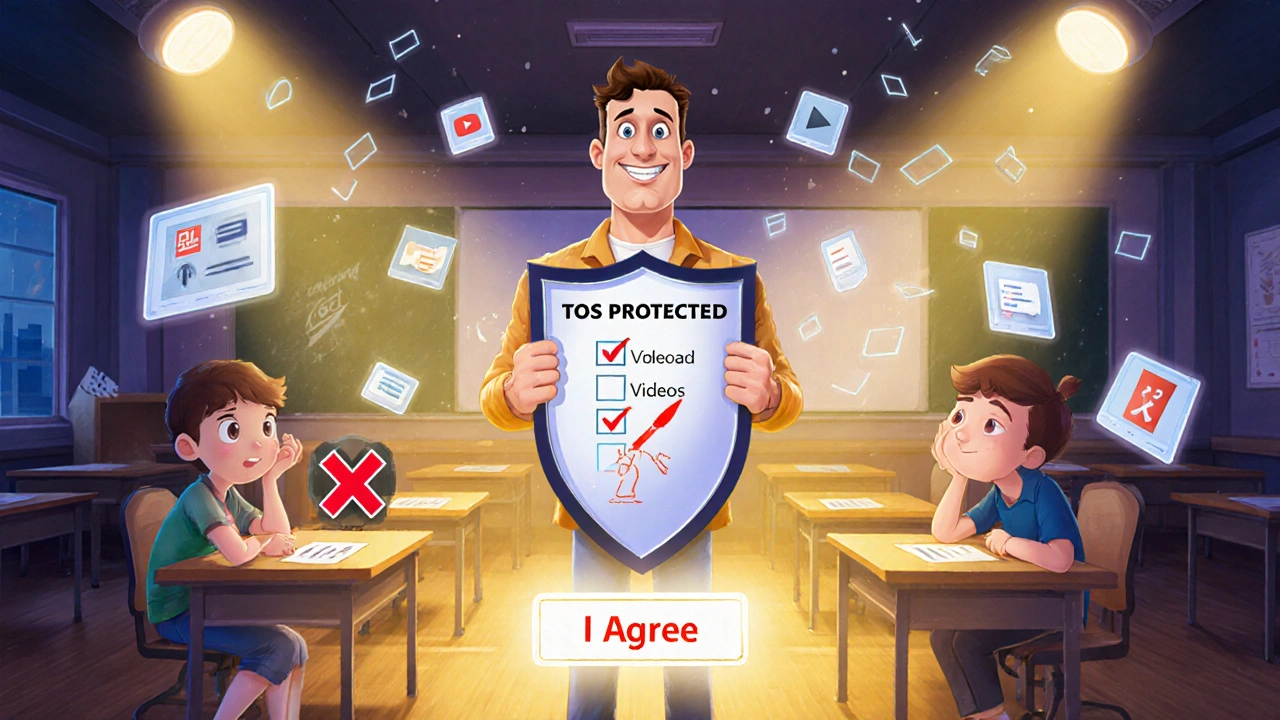Course Agreement Clauses: What You Need to Know Before Signing
When you sign up for an online course, you’re not just paying for lessons—you’re agreeing to a course agreement clause, a legally binding set of terms that outline your rights and responsibilities as a learner. Also known as terms of service, these clauses control everything from refunds and access periods to how your data is used and whether you can share course materials. Most people skip them. That’s a mistake.
These agreements aren’t just fine print. They define whether you can download videos, if the provider can change the curriculum without notice, and what happens if you miss a deadline. Some clauses lock you into non-refundable payments even if the course doesn’t deliver. Others claim ownership over your work—like assignments or trading strategies you create—without telling you. You don’t need a law degree to spot trouble. Look for words like "sole discretion," "non-transferable," or "irrevocable." If the provider can change the rules anytime, you’re not in control.
Related to this are learner rights, the protections you’re entitled to under consumer and education laws. These include the right to clear pricing, access to support, and privacy under rules like CCPA or FERPA. Many course providers mention these in separate policies, but the agreement clause is where they limit those rights. For example, a course might say it follows FERPA, but then claim in the agreement that your trading journal data isn’t protected because it’s "user-generated content." That’s a trap.
Then there’s course policies, the practical rules that govern how you interact with the course platform. These cover things like forum behavior, use of AI tools, and participation requirements. If a course says you must post weekly but doesn’t say how many words or what format, that’s vague—and that’s intentional. Clear policies protect you. Vague ones protect the provider.
And don’t forget online course contracts, the formal legal documents that bind you to the provider’s terms. These aren’t just for big platforms. Even small instructors use them. If you’re paying hundreds or thousands, you deserve to know what you’re signing. A good contract lists exactly what’s included, how long you get access, and what happens if the course shuts down. A bad one buries that in a 10-page PDF you have to click "I agree" to skip.
What you’ll find in the posts below are real, practical guides on how to read these documents, what to demand from providers, and how to protect yourself without hiring a lawyer. You’ll learn how to spot hidden fees, understand refund windows, and know when a course’s rules are unfair. You’ll also see how top educators design transparent agreements that build trust—not legal loopholes. This isn’t about being suspicious. It’s about being smart. If you’re investing time and money into your trading career, don’t let a poorly written clause cost you more than you paid for the course.

Terms of Service for Online Courses: Essential Template and Key Clauses
Learn the essential clauses every online course Terms of Service must include, with a ready-to-use template and practical tips to protect your content and avoid legal issues.